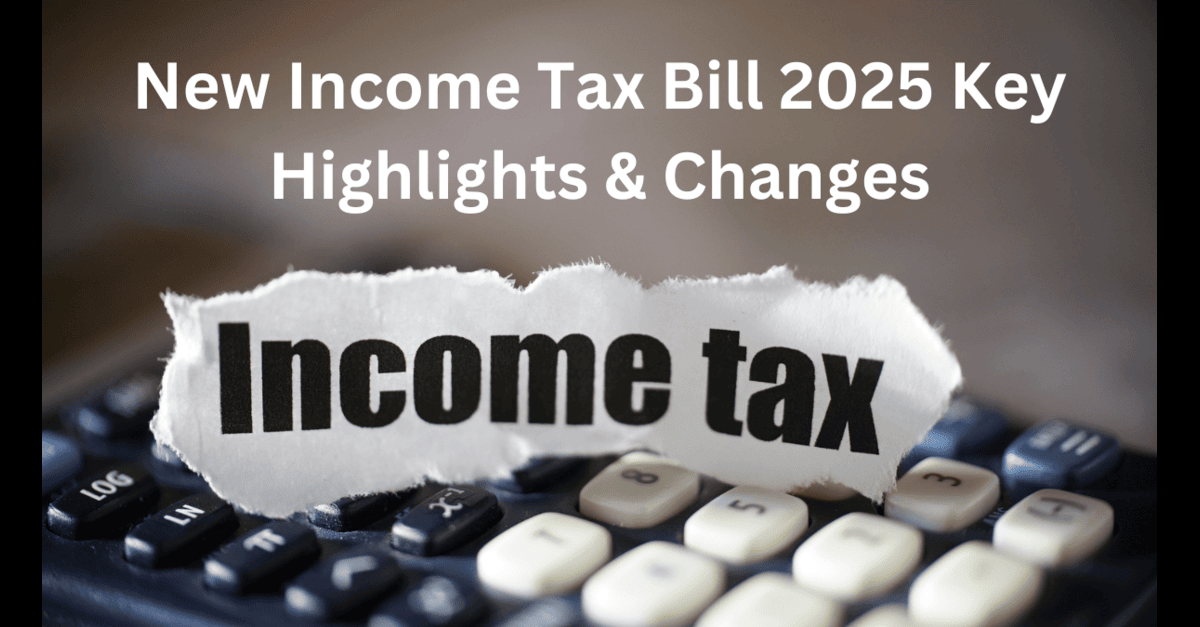ABSTRACT
The Income Tax Bill, 2025 has introduced multiple revolutionary changes to the India’s direct tax regime with simplification of tax provisions to repose taxpayer faith and aligning with the global best practices is placed as its central theme. In this observative article, I shall attempt to analyse the procedural and structural reforms which the bill is attempting to put forth and simultaneously I shall note their implications for individuals, corporations, and non-resident Indians (NRIs). The changes which are being discussed largely constitute rationalized slab rates, revised presumptive taxation ceilings, and modifying the compliance for TDS/TCS. Further, it is submitted that all of these changes are aimed at reducing litigation, enhancing transparency and promoting voluntary compliance.
INTRODUCTION
The Income Tax Bill, 2025, tabled in Parliament on 13 February 2025, seeks to replace the Income Tax Act, 1961, the largest overhaul of India’s tax regime in half a century. Preserving core principles of the 1961 Act, the Bill streamlines outdated provisions, reduces compliance expenses, and follows a “Trust First, Scrutinize Later” policy. By halving the statute’s word count and eliminating duplicate clauses, it aims to enhance clarity for administrators and taxpayers. This article evaluates the Bill’s changes skewed in favour of beneficiaries, their rationale, and systemic implications.
MAIN BODY
- Simplification of Tax Provisions and Enhanced Clarity
The Bill simplifies the Act by removing 3 lakh words and grouping provisions. The key changes are:
- Consolidated “Tax Year” Concept: Replaces “previous year” and “assessment year” with a single “Tax Year” (April 1–March 31), reducing procedural uncertainties.
- Redesigned Deductions:
- Section 80C deductions are grouped in Schedule XV, giving a clear list of investments that can be deducted.
- Sections 80TTA (savings account interest) and 80TTB (senior citizens) are merged, simplifying claims on interest income.
- Tax-Exempt Gifts Clarified: Explicitly excludes gifts by lineal ancestors/descendants (maternal or paternal) under Section 56(2)(x).
These changes harmonize with the Bharatiya Nyaya Sanhita’s emphasis on “Nyaya” (justice), bringing certainty in tax administration.
- Liberalized Presumptive Taxation Scheme
The Bill liberalizes the presumptive taxation under Section 58 in the interest of small professionals and businesses. Under the new regime, the turnover limit for businesses opting for presumptive taxation is increased from ₹20 million to ₹30 million subject to the requirement that cash receipts cannot exceed 5% of total turnover. For professionals, the gross receipt limit is increased from ₹5 million to ₹7.5 million. The profit to be revealed under this scheme must be a minimum of 6% of turnover in the event of digital transactions or 8% in the case of cash transactions, or the actual profit, whichever is higher. The Bill also gives a five-year lock-in provision so that the scheme is not misused; if a taxpayer opts out of the scheme within this period, the taxpayer will have audit requirements.
These changes significantly reduce compliance obligations of small and medium enterprises by eliminating the requirement of compulsory audit on those reporting the specified minimum profits. Higher thresholds along with simplified calculations will render voluntary compliance much easier to promote in order to enhance smaller businesses as well as professions.
- Rationalization of TDS/TCS Regime
The Bill fully simplifies TDS/TCS provisions for ensuring ease of compliance with safety of revenues:
- Discontinuation of Nil TDS Certificates: Taxpayers, including Non-Resident Indians (NRIs), can no longer grant nil deduction certificates under Clause 395. Lesser deductions are accepted, but TDS is required even for exempt income (such as capital loss).
- Expanded Coverage for Lower TDS Certificates: Request for lower TDS rates now covers all types of payments such as rent, dividends, etc., as opposed to the limited categories of Section 197 of the 1961 Act.
Effect on NRIs:
- Beneficial: Simplified procedure for lower TDS on various sources of income.
- Issues: Limited liquidity since funds are blocked until refund is made.
- Revisions in Tax Slabs and Marginal Relief
- Increased Rebate Limit: Individuals in the new regime receive full rebates of up to ₹12 lakh (compared to ₹7 lakh earlier). For salaried individuals, effective exemption (along with standard deduction) goes up to ₹12.75 lakh.
- Marginal Relief: Progressive relief for incomes between ₹12–12.7 lakh keeps net tax burden from raising income over ₹12 lakh.
This stimulates migration to the new regime, particularly among middle-income individuals.
- Improved Compliance and Dispute Settlement
- Expanded Reopening Time Limit: The reopening time limit is increased from 3 to 6 years.
- Coverage of Digital Assets: Hidden income now expressly includes virtual digital assets (e.g., cryptocurrencies) under searches.
- CBDT Power: The Central Board of Direct Taxes is authorized to insist on ITR filings, scrutinize credit card transactions, and design taxpayer-friendly schemes.
KEYWORDS
Income Tax Bill 2025, Presumptive Taxation, Rationalization of TDS, Tax Year, Marginal Relief, CBDT Powers.
CONCLUSION
The Income Tax Bill, 2025, while continuing with the essential policies of the 1961 Act, plugs age-old gaps in India’s taxation system. With enhanced levels of exemption, easing compliance for SMEs, and inclusion of digital assets within taxation, it is a judicious balance between the interest of the taxpayer and compulsions of revenue. Albeit, challenges continue to persist, particularly for NRIs suffering liquidity stress due to cancelled nil TDS certificates. The success of the Bill is dependent on effortless implementation of its “Trust First” ideology, for which robust taxpayer education and efficient dispute resolution machinery are a prerequisite. During parliamentary debate on the Bill, stakeholders will need to play an active role to design a tax system that is both equitable as well as growth-oriented.
“PRIME LEGAL is a full-service law firm that has won a National Award and has more than 20 years of experience in an array of sectors and practice areas. Prime legal falls into the category of best law firm, best lawyer, best family lawyer, best divorce lawyer, best divorce law firm, best criminal lawyer, best criminal law firm, best consumer lawyer, best civil lawyer.”
WRITTEN BY LALITHA SASANKA G


